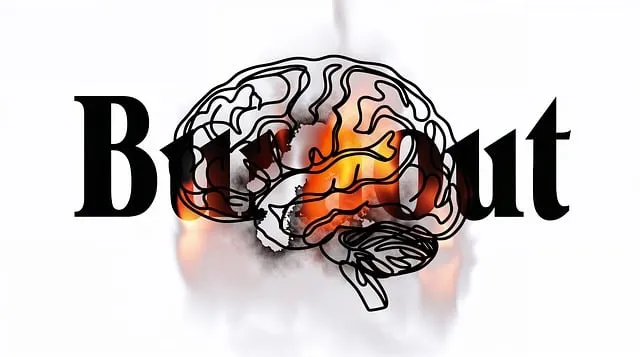Community outreach programs, including Mental Health Education Initiatives led by organizations like Kaiser in Littleton, are crucial for enhancing access to healthcare services. These programs address unique barriers preventing individuals from seeking care, offering direct services, education, and coping strategies. By destigmatizing mental illness, these initiatives empower residents with improved social skills, conflict resolution, and emotional well-being. Kaiser's holistic approach integrates compassion cultivation and emotional healing practices, providing comprehensive programs that cater to diverse mental health needs in Littleton, thereby reducing the burden on traditional resources. Measuring success involves clear goals, KPIs like attendance rates and behavioral changes, effective communication strategies, and empathy-building to encourage participation.
Community outreach programs play a vital role in enhancing access to essential services, particularly in areas like Littleton where specialized care may be limited. This article delves into the significance and implementation strategies of such programs, focusing on mental health services. We explore how organizations, including Kaiser, contribute to improving community well-being in Littleton. By evaluating existing initiatives and measuring success, we aim to highlight effective outreach approaches, ultimately fostering better healthcare accessibility for all residents.
- Understanding Community Outreach Programs: Their Role and Impact
- Evaluating Mental Health Services in Littleton: A Kaiser Perspective
- Implementing Effective Community Outreach Strategies
- Measuring Success: Assessing the Effectiveness of Outreach Programs
Understanding Community Outreach Programs: Their Role and Impact

Community outreach programs play a pivotal role in bridging the gap between healthcare services and underserved populations, such as those living in Littleton or areas where Kaiser’s mental health coverage is crucial. These initiatives are designed to bring essential services directly to communities, addressing unique challenges and barriers that may prevent individuals from accessing care. By implementing well-structured outreach programs, organizations can enhance mental health awareness, provide education on various issues, and offer specialized support tailored to community needs.
Littleton’s residents benefit from these programs through improved access to mental health resources, conflict resolution techniques, and social skills training. Mental Health Education Programs are designed to destigmatize mental illness and empower individuals with coping strategies. Moreover, these initiatives foster a sense of community engagement, ensuring that folks receive the support they need without navigating complex healthcare systems. This direct approach can significantly impact individual lives and contribute to a healthier, more resilient community overall, especially when focusing on at-risk populations.
Evaluating Mental Health Services in Littleton: A Kaiser Perspective

In Littleton, evaluating mental health services is a critical aspect of ensuring community well-being, and Kaiser has been at the forefront of this initiative. The organization’s perspective on mental health care highlights a holistic approach that goes beyond traditional treatments. By incorporating compassion cultivation practices and emotional healing processes, Kaiser aims to address the complex needs of its community members. This strategic move not only improves access to mental wellness coaching programs but also fosters a sense of support and understanding.
The implementation of these programs is part of a broader development strategy aimed at enhancing overall mental health outcomes. In light of this, Kaiser’s presence in Littleton ensures that residents have access to comprehensive services that cater to diverse needs. This includes not just clinical interventions but also community-based initiatives that promote resilience and emotional well-being, thereby reducing the burden on traditional mental health resources.
Implementing Effective Community Outreach Strategies

Implementing effective community outreach strategies requires a deep understanding of the local landscape and the unique needs of its residents. In areas like Littleton, where Kaiser provides mental health services, engaging with the community involves more than just informational sessions. It necessitates a multifaceted approach that combines accessible resources, such as mental wellness podcast series production, with practical initiatives like Compassion Cultivation Practices workshops. These efforts aim to foster emotional healing processes and build resilient communities.
By integrating innovative programs and traditional outreach methods, organizations can better connect with residents and address pressing issues like mental health awareness. For instance, leveraging online platforms and social media alongside grassroots events ensures that information reaches diverse audiences, fostering a more inclusive and supportive community environment for all, including those seeking mental wellness support from Kaiser in Littleton.
Measuring Success: Assessing the Effectiveness of Outreach Programs

Measuring success is a vital aspect of community outreach program implementation. To assess the effectiveness of these initiatives, organizations should define clear goals and metrics that align with their objectives. By tracking key performance indicators (KPIs) such as attendance rates, participant feedback, and behavioral changes, programs can demonstrate their impact on the target community. For instance, in a mental health outreach program like the one offered by Kaiser in Littleton, measuring success might involve assessing the number of individuals who seek professional help for the first time or track improvements in participants’ emotional well-being over time.
Effective communication strategies and empathy building techniques play a significant role in achieving these outcomes. By fostering open dialogue, actively listening to community needs, and employing confidence-boosting tactics, outreach programs can create an environment where individuals feel comfortable discussing sensitive topics like mental health. This not only encourages participation but also ensures that services are tailored to meet the unique challenges faced by the community.
Community outreach programs play a pivotal role in enhancing access to essential services, particularly in areas like Littleton where mental health support is crucial. As demonstrated by Kaiser’s evaluation, these initiatives can significantly impact underserved populations. By implementing effective strategies and measuring success through comprehensive assessments, organizations like Kaiser can ensure their outreach reaches the intended audience. Understanding the unique needs of the community and adapting programs accordingly is key to fostering positive change and improving overall well-being in Littleton and beyond.






